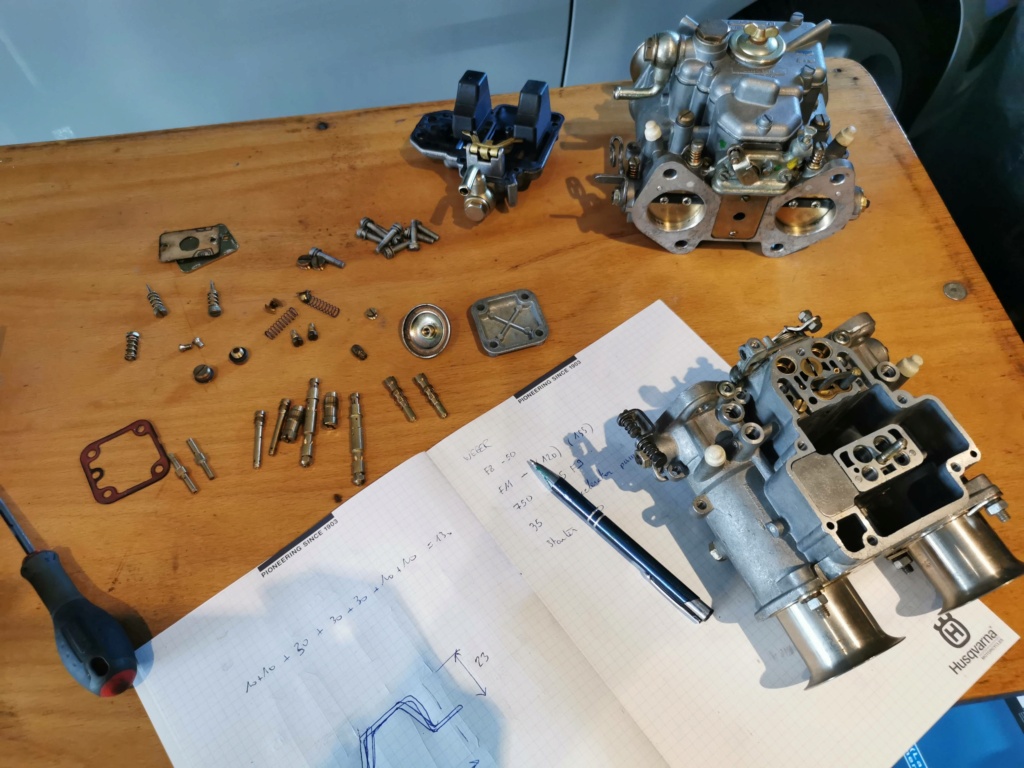You're very welcome.
Just a thought. When you said they were 50mm chokes, were you looking at the chokes, or the auxiliary venturi's ? There's just a chance that you may have 5.0 aux venturi's in them, which, for the Lotus Twincam, should be 4.5.
The auxiliary venturi's are what you can see in the carb barrel when looking at a fully assembled carb, and are held in place by a slightly pointed grub screw & locknut which, on a 151, screws in on the underside of each barrel.
The chokes are located behind this venturi, and are held in place by the auxiliary airscrew (to stop it rotating in the barrel, and are located underneath the white plastic caps, (again, with a locknut, one on each barrel, topside), and a brass pin , set into the side of each choke, see exploded view below link :-
https://www.webcon.co.uk/weber/40dcoe.htm